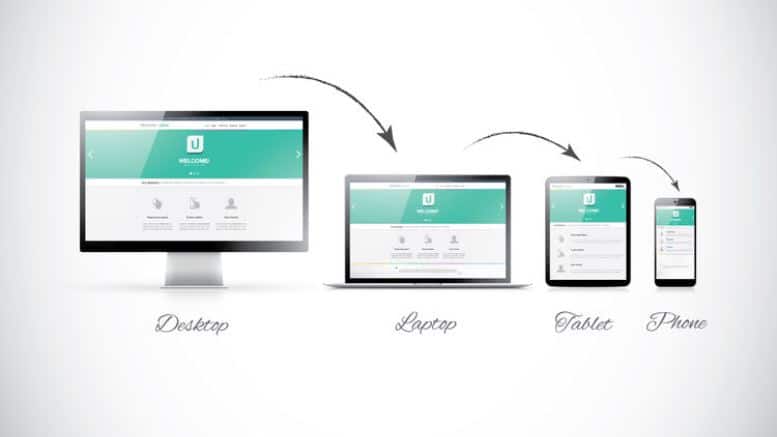By Joris Van Der Gucht
In this day and age, using flexible tech to grow and develop your practice is key. When it comes to integrating your accounting solution with other parts of your business, such as CRM and sales, you now have plenty of options. In this article we discuss 5 key takeaways to keep in mind when you’re narrowing down your options.
To set the scene, look at how technology has revolutionised retail. First there were independent, local shops, then came monolithic shopping centres, occupied mainly by large chains and supermarkets. Now you can buy online, customise your order and get it delivered to your front door, all done at your fingertips. And e-commerce businesses are even beginning to take a stab at traditional retail by opening their own brick-and-mortar stores.
Just like how shopping has become a multi-location and multi-platform experience, developments in technology are changing other industries too. And that includes accounting. Here are five examples and key takeaways of how flexible software is a game changer in the world of accounting.
Smart Integration
Relying on just a single piece of software that is hard to build on or add to is a thing of the past. Modern applications now allow you to integrate various tech into your practice and even integrate different software with each other. At CIPHR, a firm that provides HR solutions to the financial sector, they implemented a CRM system in February and it’s already having a positive impact.
“We combined two legacy systems, bringing all the customer data and activities into one platform and database that can be accessed by all the relevant people,” Graeme Scott, CIPHR’s chief financial officer, says.
“Though it’s too early to measure the return on investment, we can already see the better management of prospects,” he adds. “It’s led to a higher number of initial customer meetings and we have a complete picture of our sales activity and customers and how we are helping them to achieve their goals.”
- Key takeaway: integrate software to bring you closer to your clients
Up in the Cloud
With the needs of clients becoming increasingly diverse, more and more accountancy firms and finance departments are demanding flexibility and accessibility when it comes to their software. According to a recent accountancy software survey published by Kingston Smith LLP, one of the UK’s top 20 audit and advisory firms, those who are using cloud platforms are reporting a higher satisfaction rate with how software is meeting needs.
Cloud infrastructure fairs better because it can offer you regular product development and enhancement. On top of this there’s a wide range of add-on software.
But probably one of the main benefits of the cloud is that it can do all the heavy lifting for you. It can collate data, analyse it and present it to you in a way that is easy to digest.
The cloud can help reduce mistakes caused by human error, improve efficiency, and enable you to spend less time number crunching and more time working on your strategy.
- Key takeaway: embrace cloud platforms to streamline your business
There’s No One-Size-Fits-All Approach
Another benefit of flexible cloud software is that you can adapt it to meet each of your clients’ unique expectations. Giving your clients a tailored overview and insight to their finances will give you a competitive edge as a service provider, notes Paul Barnes, managing director of My Accountancy Place, an SME that specialises in helping digital creative agencies to grow more profitably.
“No one-size-fits-all when it comes to software. A flexible ecosystem allows us to build a service offering that competes with large professional firms,” says Barnes. “At our firm, we have technology automating marketing, the onboarding of new clients and chasing other clients for information,” he adds. “We also use apps for capturing expenses, reporting and benchmarking.”
This free eBook will teach you how to share the right financial information and reports at the right time.
- Key takeaway: recognise there’s no one-size-fits-all approach
Think Before You Jump
Investing in software can have a positive impact on streamlining your operations and increasing your bottom line, but there can come a point when so many apps and add-ons is too many. According to Simon Woodhams, head of cloud accounting software at Wilkins Kennedy LLP, it’s important to be wary of this so your software doesn’t become too complex.
- Key takeaway: think about whether each app or feature adds concrete value
Why Now Is the Right Time
You’ve read why you should integrate your accounting with your CRM and sales, but you may be left wondering why you should do it now?
Well, you’re most likely a growing business with ambitious clients. If this is the case then using monolithic technology, with its legacy tools and outdated software, can hold you back from maximizing the potential of cloud data and what it could mean for your client’s business.
If you want to meet your business goals in a digital world, then now is the time to enhance your accounting integration.
- Key takeaway: integrating accounting, CRM and sales can grow your practice
Joris Van Der Gucht is the co-founder & co-CEO of Silverfin.


Be the first to comment on "How flexible software is a game changer in the world of accounting"